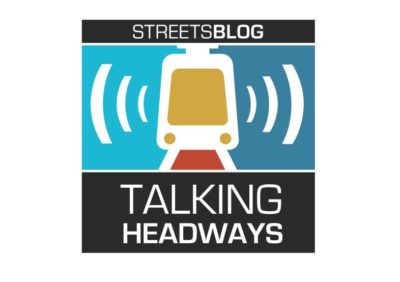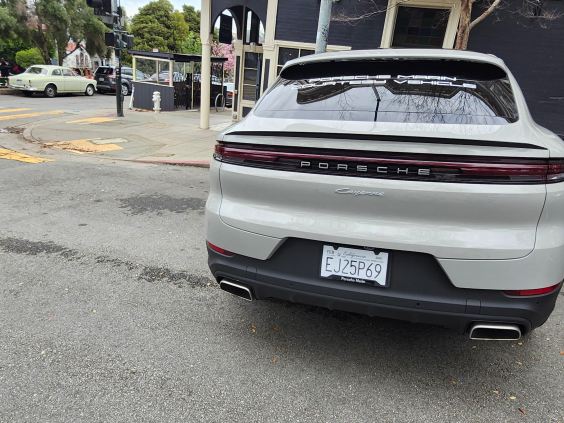Kevin Krizek, professor at the University of Colorado Boulder, and David King, assistant professor at Arizona State University, talk about their book, "Advanced Introduction to Urban Transport Planning." We chat about access, justice, and why the book is perfect for changing the conversation around transportation.
For those of you who get your news through your eyes and not your ears, there’s an edited transcript below the audio player. If you want a full, unedited transcript (with some typos!), click here. If you want to listen, here you go:
Jeff Wood: Y’all do a great job of connecting the dots between a lot of things. There’s transport justice; there’s access; there’s four-step models. There’s all kinds of things in the book that connect everything. I’m curious what the hardest concept was to kind of explain in plain terms. The way that the book is written, everything is very clear and clean and easy to understand. So if you gave it to a city council person, for example, I feel like they would easily get the concepts and it would make a lot of sense. And from my perspective, as somebody who talks to a lot of folks who are doing this stuff and thinking about this stuff, I feel like trying to make it simple is a very valuable thing, because we can have a conversation for an hour about transport justice with Karel Martins, but making it into like a paragraph or two is actually maybe a better way to go for a lot of people, rather than trying to jump into the Rawlsian philosophy of it all. So I’m curious, what was the hardest part of trying to take all these really difficult concepts and sometimes not so difficult concepts and put them into plain terms like you all have.
Kevin Krizek: We don’t have a shortage of transportation-solutions experts who are all pointing toward accessibility as the solution. There’s growing and increasingly consensual agreement that that is where the golden nugget lies. What we don’t have is good pathways to create that accessibility. We don’t know how to do that. And we know that the century-long practices of ensuring mobility or, in particular, automobility have really cemented a lot of our thinking. So I would claim that one of the most difficult parts of the book is to basically allow the reader to have not one, not two, but 15, 20, 30 different points to allowing that Eureka moment to kind of seep in.
And you can’t just have one chapter on accessibility. You’ve got to have a whole book about accessibility, but you don’t want to just knock everybody over the head with the hammer of the accessibility hammer in every chapter. So how do you roll out this issue and allow the reader to see different pathways to a meaningful solution for them to enact.
David King: I think probably one of the concepts that’s very difficult gets at the core of what we do as researchers and also the way transport is planned is that we tend to focus on what we can collect data about. Then we analyze that. Now, that’s great. Kevin and I are researchers: We trade in data. We do analysis. We write papers about this stuff. But one of the problems with data, especially when we’re getting into the data of transport, is we tend to focus on what we can get a lot of data for. A lot of that is what we can collect easily. It’s really easy to collect data on vehicle flows. It’s really easy to collect data on vehicle speeds. That leads us to overemphasize flows and speed as what’s important.
It’s not really important, at least in the context of what’s important for a good city, but it’s very important because we can measure it. So we can do the analysis. We can present that. So what we’re arguing in the book is a bit more of taking a normative approach and not being so worked up about what is easily measured and easily analyzed, but spending a little bit more time, actually spending a lot more time, on focusing on what is actually important to urban dwellers, what is actually important to making a good city.
That is often not as easily measured, and it’s not as clean to describe; you can describe congestion pretty easily and people understand it. You know, "I am sitting in my car and I am not moving on the freeway. I am in congestion." Right. But if you start talking about accessibility or things like that, it’s not as intuitive a concept. So that is where, when we’re trying to prescribe these changes to make of the planning process and some of the changes, we’re advocating to lead to more normative approaches and normative being things that should be, rather than things that are. That was a real challenge to write about — and certainly something that we’re continuing to write about because it’ll take a long time to get these changes enacted.






